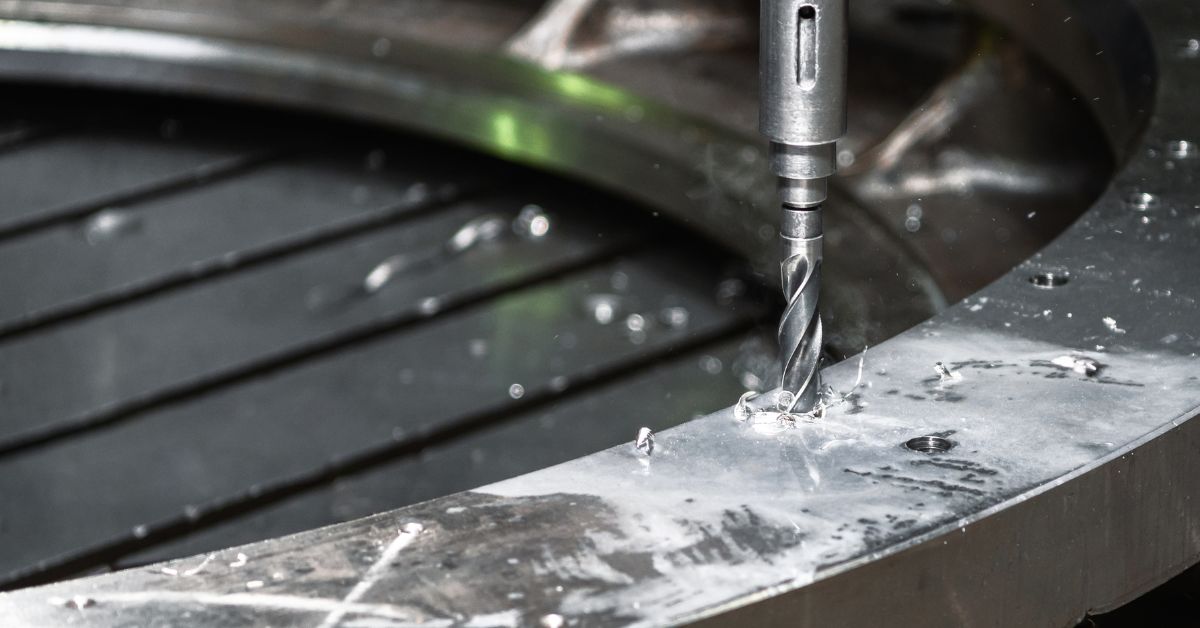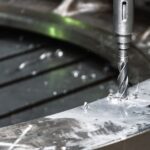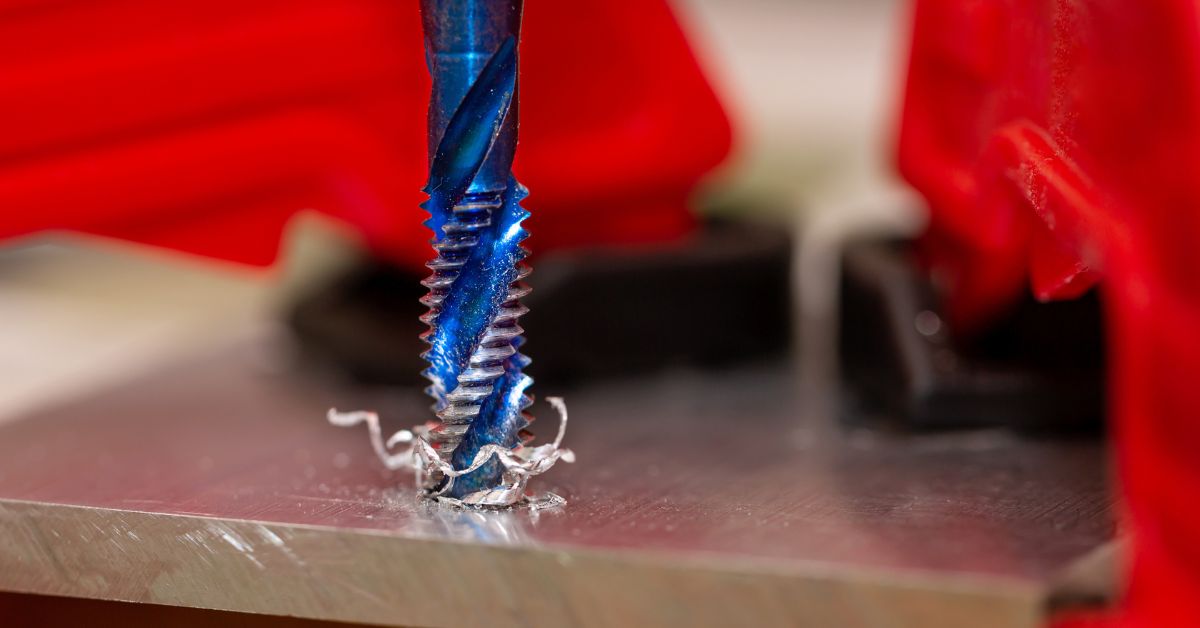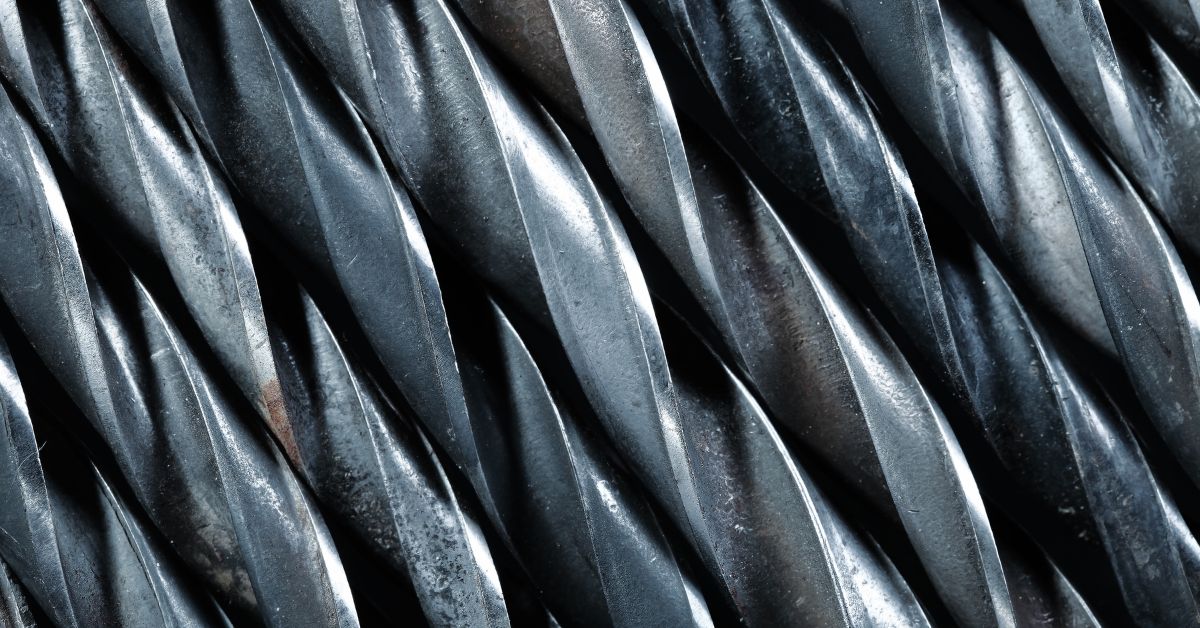Drilling into soft metals like aluminum, copper, or brass might seem simple, given their malleability. However, these materials are prone to warping, scratching, and tearing when using incorrect tools or methods.
As a professional, knowing how to drill correctly can save you time and help you avoid disappointing results. Below, we’ve compiled practical tips for drilling into soft metals without causing damage that will surely come in handy.
Choose the Right Drill Bit for the Job
Not all drill bits are created equal. For example, high-speed steel (HSS) or titanium-coated drill bits are ideal for soft metals because they’re durable enough to maintain precision without generating excessive heat. If you’re working with a mix of soft and tougher materials, like aluminum with embedded steel brackets, an M42 cobalt drill bit is a smart choice. M42 bits are sturdy yet gentle enough to handle softer metals without excessive heat buildup.
Pre-Mark the Drilling Spot
Marking where you plan to drill improves accuracy. Use a center punch to create a tiny indentation at the spot where you’ll start drilling. This indentation prevents the drill bit from slipping when you initiate the drilling process, especially on smoother metal surfaces.
Secure the Metal Properly
Holding soft metal by hand while drilling can lead to inaccuracies and even accidents. Use a clamp or a metal vise to keep the material secure. You’ll have stability and protection while you work so you can focus on the task at hand.
Use Low Drill Speeds
Soft metals like aluminum or copper don’t require high-speed drilling. Instead, moderate or low speeds work best. Reducing speed prevents heat from building up, which could warp the material or dull the drill bit. For thin metals, slower drilling also stops tearing and rough edges.
Lubricate To Prevent Overheating
Lubrication is key when drilling metals. A few drops of oil or a specialized cutting fluid reduces friction and heat for a clean cut. For example, when drilling into brass, applying a light machine oil prevents the bit from seizing and keeps the metal from deforming due to heat. Overheated drill bits can melt or damage soft metals, so don’t skip this step. Remember to reapply lubricant periodically during the process.
Drill Pilot Holes for Accuracy
Start with a smaller pilot hole when planning to drill a larger hole in soft metals. This technique is especially useful for improving accuracy and control. By first creating a pilot hole, typically using a bit that’s significantly smaller than your final drill size, you establish a precise entry point that guides the larger bit, preventing it from wandering or slipping across the surface.
This practice is particularly important when working with materials like copper or aluminum, which can be easily scratched or distorted. For example, if you need to drill a half-inch hole, starting with a ⅛-inch pilot hole allows the larger bit to follow a defined path, resulting in a cleaner, more accurate finish. This approach also reduces strain on your drill bit and motor, extending their lifespan for a smoother drilling experience overall.
Watch the Angle of the Drill
Keeping the drill at a consistent angle is critical when working with soft metals. Ideally, position the drill perpendicular (at a 90-degree angle) to the surface for a clean, accurate hole. Tilting the bit or applying uneven pressure can lead to misaligned or irregular holes, increased wear on the drill bit, and even distortion of the metal.
For instance, when drilling into aluminum sheeting, even a slight angle can cause the bit to skid or “walk,” ruining precision. To avoid these issues, use clamps to secure the material. Also, always maintain a firm, steady grip on the drill. Applying consistent pressure and maintaining control throughout the process will yield smooth, professional-quality results.
Manage Drill Feed Pressure
Avoid applying excess pressure to the drill. Soft metals require a lighter touch than harder materials like steel. For example, when drilling into aluminum sheet metal, using too much force can cause the bit to bite too quickly, leading to jagged edges or even deformation. Firm, consistent pressure is enough to get the job done without jamming the drill bit or creating unnecessary stress on the metal.
Clean Up Metal Shavings
Metal shavings or debris often accumulate during drilling, especially with soft metals. This waste can obstruct progress or scratch the metal surface if not managed. Use a vacuum or brush to remove shavings periodically for a smooth surface and a safer working environment.
Use Backing Material for Thin Metals
When working with thin sheets, backing material can prevent distortion. Place a piece of wood or scrap metal beneath your soft metal before drilling. This support reduces the chances of bending or creating rough holes as the drill bit exits.
Test on Scrap Metal First
If you’re new to drilling or tackling an intricate project that demands precision, practicing on a scrap piece of soft metal can make a huge difference. This step allows you to get a feel for how the material responds to drilling, such as how much pressure is needed, what speed setting works best, and how the drill bit interacts with the surface.
For example, you might notice that too much pressure causes the bit to dig in too quickly or that the metal tends to catch on the bit unless lubricated. By ironing out these issues ahead of time, you reduce mistakes, improve your control, and build the confidence necessary to achieve clean, professional-looking results.
Inspect Your Drill Bits Regularly
Using worn or dull drill bits compromises your results and makes drilling harder than it needs to be. Always inspect your bits before starting a project. Replacing or sharpening tools as needed ensures clean, consistent cuts.
Eliminate Guesswork With the Right Techniques
Drilling into soft metals can be incredibly satisfying when done right. You can achieve clean, precise results when drilling into soft metals without damaging your materials or tools by prioritizing careful preparation, the right equipment, and attention to detail.
Whether crafting an intricate art piece or working on a practical project, these tips will keep you on the path to success. If you’re ready to upgrade your tools for maximum precision, check out our M42 cobalt drill bit sets for a superior drilling experience. We exclusively offer products we trust and would confidently use ourselves, so please don’t settle for less when it comes to quality results.






